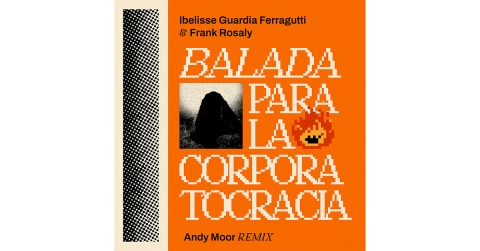AfroCubism makes its much belated North American release this week, followed by a three-city tour of Montreal, Boston, and New York City. The New Yorker calls the project a "collaboration well worth the wait." The New York Times, in a feature article on the album, calls it "a rich yet subtle fusion of African and Cuban sounds." AfroCubism is also featured in a Reuters/Billboard article and reviewed by Dusted, which calls it "elegant."
AfroCubism finally makes its much belated North American release this week on Nonesuch, followed by a three-city tour of Montreal, Boston, and New York City starting Friday. The coming together of some of Mali and Cuba's finest musicians was meant to take place some 14 years ago in Havana; when visa problems prevented the Malians' from making the trans-Atlantic trip, a different recording session took place, and from it the Buena Vista Social Club was born. The New Yorker, previewing next week's performance at New York's Town Hall, calls the project a "collaboration well worth the wait."
---
The album and its long history are documented in a feature article that ran on the front page of the New York Times Arts section on Saturday. In the article, Times writer Ben Sisario talks with two of the musicians who were finally able to record together on AfroCubism—guitarists Eliades Ochoa, who appeared on the Buena Vista Social Club album, and Djelimady Tounkara, one of the Malians who was meant to appear on the original album with him—and with Nick Gold, head of World Circuit Records, who produced the new album.
"AfroCubism is a rich yet subtle fusion of African and Cuban sounds," Sisario writes, "with Mr. Tounkara’s guitar lacework wafting over guajiras and sons, and friendly counterpoint between the kora and the Cuban guitar. One song, 'Jarabi,' which [fellow AfroCubism contributor Toumani] Diabaté has been playing for years, gets a new opening riff lifted from Compay Segundo, the Buena Vista singer and songwriter who died in 2003 at age 95."
Sisario goes on to explore both the deep-rooted cultural connection between Cuba and Mali and the distinctions between them that surfaced in the recording studio.
You can read the complete article and see what the musicians have to say about the project at nytimes.com.
---
The album is also featured in a Reuters/Billboard article by Nigel Williamson. "'Prequels' are usually the preserve of filmmakers," Williamson writes. "But the Grammy Award-winning Buena Vista Social Club album has spawned a rare instance of the phenomenon in the music industry."
Williamson goes on to sum up the resulting "prequel" this way: "The project finds Ochoa's group adding a Cuban/Latin flavor to traditional African tunes, while the Malians contribute rippling rhythms to Cuban classics like 'Guantanamera' and Ochoa's compositions."
Read more at reuters.com.
---
Dusted magazine calls AfroCubism "an elegant recording." The album's showcasing of the cultural ties between the musicians' countries creates "a dense, yet restrained weaving of melodic lines by the variety of plucked strings (ngoni, kora, tres, guitars, and double bass) and balafon," writes Dusted reviewer David Font-Navarrete. "The percussion tends to play a subtle, supporting role without bombastic flourishes, and the vocals are delivered in a clean, unadorned way ... The musicians are exceptionally sensitive, experts at keeping a groove moving forward while staying out of each others’ way."
Read the complete review at dustedmagazine.com.
---
For more on the tour dates, visit nonesuch.com/on-tour. To pick up a copy of the album with high-quality, 320 kbps MP3s and the exclusive bonus track, "Keme Bourama," head to the Nonesuch Store.
- Log in to post comments



